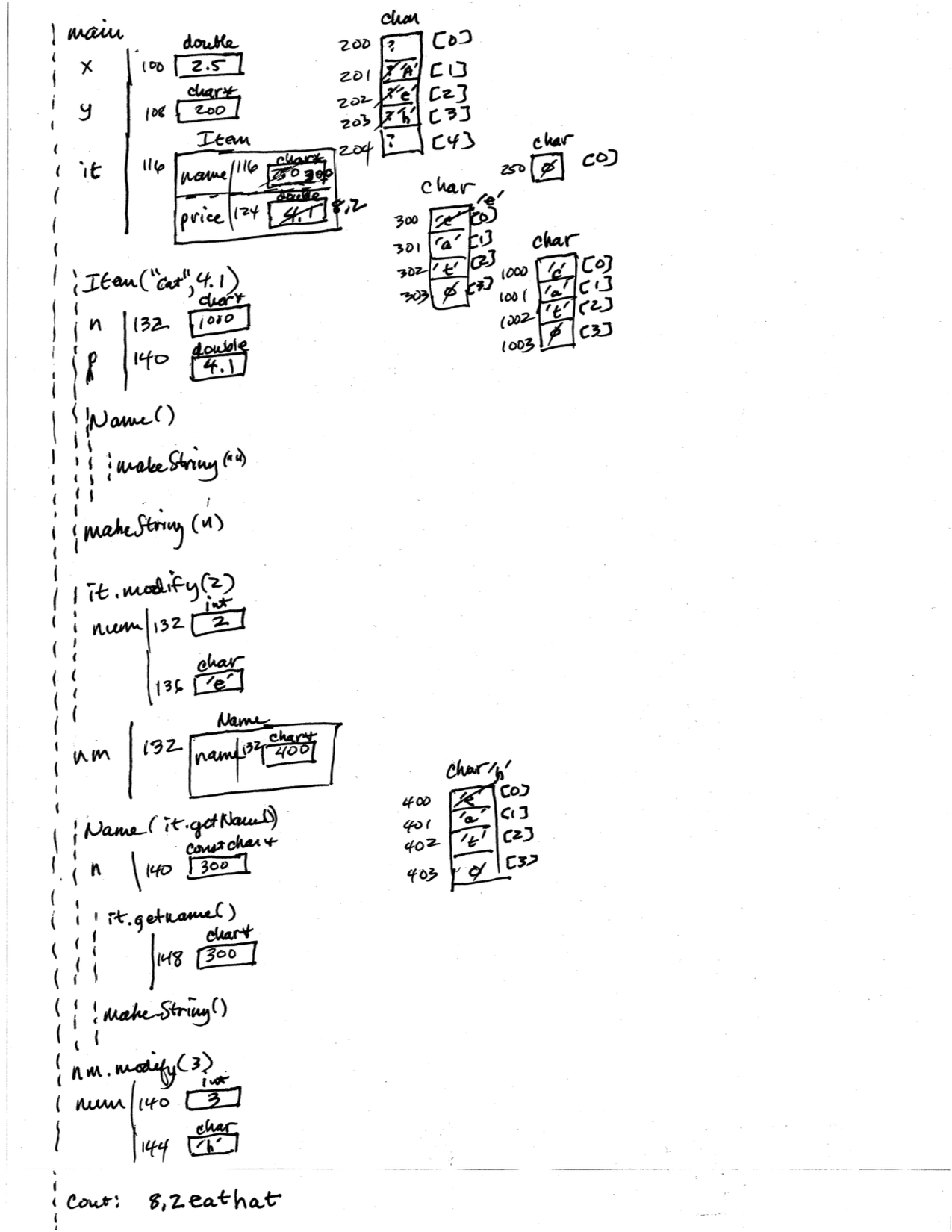#include <iostream>
using namespace std;
#include "Car.h"
class Taxi : public Car {
protected:
char *driver;
float rate;
char *makeString(const char *str) const;
public:
Taxi(const Car &cr, const char *dr, float rt)
: Car(cr) { driver = makeString(dr); rate = rt; }
Taxi()
: Car() { driver = makeString(""); rate = 0; }
Taxi(const Taxi &tx)
: Car(tx) { driver = makeString(tx.driver); rate = tx.rate; }
~Taxi() { delete [] driver; driver = 0; }
Taxi &operator=(const Taxi &tx)
{ delete [] driver; Car::operator=(tx);
driver = makeString(tx.driver); rate = tx.rate; return *this; }
void setRate(float rt) { rate = rt; }
void setDriver(const char *dr) { delete [] driver; driver = makeString(dr); }
void display() const;
};
void Taxi::display(void) const {
Car::display();
cout << " (" << driver << ", $" << rate << ")";
}
char *Taxi::makeString(const char *str) const {
int len;
for (len = 0; str[len] != '\0'; len++)
;
char *newstr = new char[len+1];
for (int i=0; i < len; i++)
newstr[i] = str[i];
newstr[len] = '\0';
return newstr;
}
Note: The trailing keyword const in
char *makeString(const char *str) const ...
void display() const ...
indicates that these are const methods, i.e., these
methods are safe for const objects to call.
The implementations for these methods are safe for const
Taxi objects to call because they make no changes in the
Taxi (or Car) state variables.
See this handout for a summary
of all four uses of const in C++.
